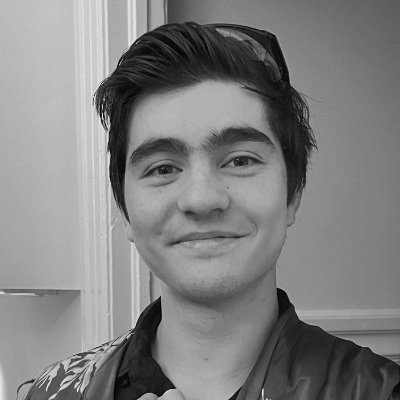
Chris Lakin
@ChrisChipMonk
Followers
7K
Following
23K
Media
660
Statuses
7K
Deep Unlearning Researcher & Bounty hunter @ https://t.co/nMNJcvTHIv
San Francisco
Joined September 2019
> Most people can't stop disliking themself until they feel safe enough to be disliked by others.
This is the idea behind the most popular post on the Locally Optimal blog. Essentially, most people can't stop disliking themself until they feel safe enough to be disliked by others. My own research has proven this to be true over and over.
0
1
26
Improvement #4: Validate the rewrite on real people!. Self-help gurus rarely seem to care whether their content helps the people with the issues they aim to address. If I rewrote The Courage to be Disliked, I would test to see if the instructions had their intended effect.
why don't coaches and therapists track long-term outcomes?. “Hey it’s been 6 months since we finished our work together - is your anxiety still gone?”.
1
0
4
Improvement #3: Present better skill trees. This book implies that you should work on Level N skills (separating tasks, being present) before you have Level N-1 skills (having the courage to be disliked, feeling secure). If I rewrote the book, I’d flesh out a better skill tree
1
0
4
Improvement #2: Add emotional and somatic guidance. A rewrite of The Courage to be Disliked that incorporated something like Coherence Therapy or Gendlin’s Focusing (or better) would go so hard!
1
0
3
Improvement #1: A less triggering explanation of teleology. Drop the term "teleology." Stop focusing on what doesn't exist (ie "Trauma doesn't exist"). Focus on what does exist: emotional issues with hidden functions.
1
0
4
Claim #7: You can choose to be present. I think here the book is making the same mistake it did with separation of tasks. It’s claiming you can choose to be present, when in reality you probably can’t
1
0
4
Claim #6: People need to feel like part of a greater whole. The most important takeaway from this section of the book is that humans thrive when they believe “my effortless existence benefits the group.”. But you have to take this belief on faith.
1
0
3
Claim #5: Separating tasks will improve your relationships. The book claims separating tasks “is enough to change one’s interpersonal relationships dramatically.” I actually think this is both very wrong and misleading as it reverses causality.
1
0
4
Claim #4: You are autonomous, and so are other adults (Separation of tasks). In other words, you can only control your own behavior and read your own mind, not anyone else’s.
1
0
3
Claim #3: Whether you outgrow your issues is your choice. Growth follows from the belief in growth. And if you believe you can't grow, you probably won't.
1
0
3
This is the idea behind the most popular post on the Locally Optimal blog. Essentially, most people can't stop disliking themself until they feel safe enough to be disliked by others. My own research has proven this to be true over and over.
What if social anxiety has nothing to do with being liked — what if it’s the exact opposite?. New post, link below
2
0
11
Claim #2: All problems are interpersonal relationship problems. While I don't believe ALL relationship problems are interpersonal, many (if not most) problems seem downstream of disliking yourself. Ie: the most common strategy to avoid interpersonal conflict
In 2023, I realized the largest bottleneck to social coordination (aka collective intelligence) is emotional insecurity. That's why I started doing what I do.
1
0
4
Claim #1: Emotional “issues” often have hidden functions. TCTBD introduces an idea called teleology. It's a framework for understanding the logic behind your emotions by evaluating their use in the present
1
0
4















